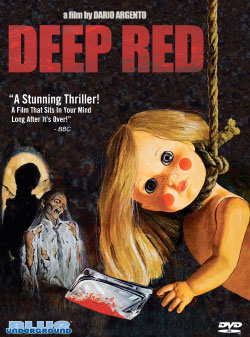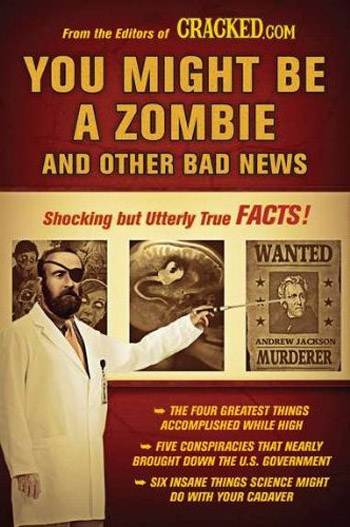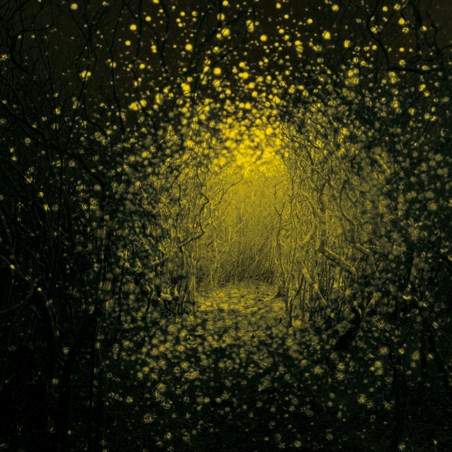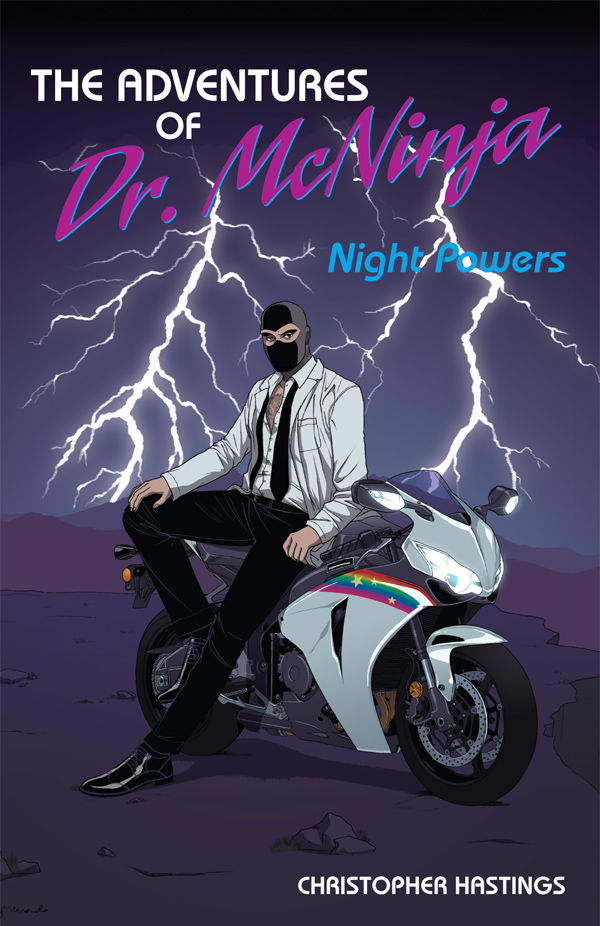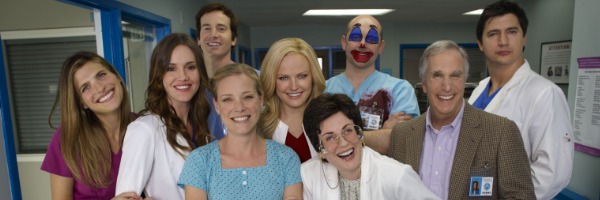Entries in Immodest Proposals (12)
Darth Maul is Boba Fett
 Rob Dean On
Rob Dean On  Wednesday, August 17, 2011 at 1:15PM
Wednesday, August 17, 2011 at 1:15PM A Note Before We Begin: No, I'm not saying that Boba Fett is a clone of Darth Maul or that Darth Maul comes back and puts on a bucket and a jetpack and reinvents himself. Unclench those nerdy buttocks, fanboys - I'm talking in metaphors and larger pictures here.

As a kid in the 80s, my favorite Star Wars movie was Return of the Jedi. I know, I know. What can I say? It had the most number of weird creatures and monsters and I was always into that. However, 2 of my favorite scenes in the Holy Trilogy came from Empire Strikes Back. The first was the weird, quick-cut Luke in the Wampa cave scenes - again, it was the most like a monster movie and I love me some horror. The second was the gathering of the bounty hunters when Darth Vader is instructing them to bring him Han and the rest. I thought each were so different, unique and interesting. There's lizard guy with the tiny hands (Bossk). Some robots, a bug and a guy with a headwound (IG88, 4LOM, Zuckuss and Dengarr, respectively)! But the one that held my attention was Boba Fett.
He just looked so cool - he was masked like Darth Vader, had a jetpack, plus he got the job done. And did Vader say something about disintegration? Then there's that scene where he's standing with Vader waiting for Leia and Han to take a seat for the most awkward dinner ever. From the moment he showed up in that Imperial Destroyer to when he got slurped down by Jabba's pet giant vagina dentata, Boba Fett left a real impression on me.
And I wasn't the only one.
 I didn't know about Fett's exploits in the animated part of the holiday special - this was pre-Internet when Lucas had the ability to purge such things from most of the collective minds of society. I didn't know about any of the comic book adventures or anything else. All I knew was that he looked cool, seemed like a badass and was gone before I knew anymore about him. Fett was an abject lesson in leaving the audience wanting more.
I didn't know about Fett's exploits in the animated part of the holiday special - this was pre-Internet when Lucas had the ability to purge such things from most of the collective minds of society. I didn't know about any of the comic book adventures or anything else. All I knew was that he looked cool, seemed like a badass and was gone before I knew anymore about him. Fett was an abject lesson in leaving the audience wanting more.
The amount of time in which he features in Star Wars movies is in direct opposite proportion to his staying power figure - Fett is often referenced in everything from Family Guy to Newsradio to even his very own (quite catchy) rap song. Fett left an impression on me and many others in my generation that lasted throughout the years. From humble beginnings in a vanished cartoon segment of suppressed holiday special, Fett endures. For some reason, Fett had his hooks in me and many other nerds and we wanted more.
Of course, when you look at his character now and over analyze the films (as we nerds are wont to do), it's a bit easier to see why Fett was so popular. What are Fett's selling points?
Porn's Next Step is Making Real Movies
 Rob Dean On
Rob Dean On  Wednesday, July 6, 2011 at 12:30PM
Wednesday, July 6, 2011 at 12:30PM  Success in the modern age is marked by two things: oversaturation and inevitable backlash. As something is recognized as being good or entertaining or lucrative, then many lampreys suddenly attach themselves to the underbelly of the main success. They ape the creative talent, the marketing, the pitch, the layout, the look, the hook. Catchphrases are spun out and apparel is adorned with recognizable images from the successful venture. Late night talk shows and morning zoo crews make lazy references and inept impressions of the successful venture. Everyone clings to the successful venture - pushing it into more markets and spinning it in novel - if ridiculously unnecessary - ways.
Success in the modern age is marked by two things: oversaturation and inevitable backlash. As something is recognized as being good or entertaining or lucrative, then many lampreys suddenly attach themselves to the underbelly of the main success. They ape the creative talent, the marketing, the pitch, the layout, the look, the hook. Catchphrases are spun out and apparel is adorned with recognizable images from the successful venture. Late night talk shows and morning zoo crews make lazy references and inept impressions of the successful venture. Everyone clings to the successful venture - pushing it into more markets and spinning it in novel - if ridiculously unnecessary - ways.
Then, when the last branded bar of soap or hollow script for the TV spin off rolls off the assembly line - the backlash begins. In fairness, it is not the successful venture that people are angry about; it's the constant reminder of the successful venture. The endless hype and pimping and cross-promoting and synergizing and Halloween costumes and frat boy imitations. The neverending loop of YouTube parodies coupled with the hours of proselytizing by fans that need you to "get it." It's all of the ephemera surrounding the successful venture that causes this backlash; the resentment of enduring all of these unoriginal interruptions that smack less of the fun and unique property and more of the soulless and derivative cashcow that it became.
Sometimes the creators of the successful venture buy into the hype - and so they get torn down with it in the Backlash Phase. Sometimes the sales figures for new revenue streams or diversified audience shares are so enticing that creators and their corporate barons willingly sacrifice the successful venture. Who knows when the next hit will come, so everyone pile on this thing now! Everyone releases their version of a remake of an 80s cartoon with scores made up of repetitive bellowing of deep bass notes, presented with the poster in blue and orange, and the making-of-featurette with untrained celebutantes boasting of the integration of the latest CGI trickery into this "ride" - all while pimping the tie-in to the specific fast food chain and soon-to-be-forgotten pop music group. That original spark, the successful venture that forged something new and exposed people's interests to the harsh light of capitalism, becomes awash in its descendants, indistinguishable to most people's hate, and relies on nerds to argue for its exclusion from the pack.
But what does this all have to do with graphic sex on film? The answer...might surprise you.
Appropriate Conduct for Men's Bathrooms
 Rob Dean On
Rob Dean On  Wednesday, June 29, 2011 at 12:30PM
Wednesday, June 29, 2011 at 12:30PM  People, we need to talk. As a society we've done a great many remarkable things: Thrown monkeys into outer space. Made a highly profitable industry out of managing and treating (but not curing) life-destroying maladies. Invented global communication infrastructures and complex technologies to support our need for sexting and porn.
People, we need to talk. As a society we've done a great many remarkable things: Thrown monkeys into outer space. Made a highly profitable industry out of managing and treating (but not curing) life-destroying maladies. Invented global communication infrastructures and complex technologies to support our need for sexting and porn.
But sometimes we fail to acknowledge when we're falling short in an area. That decline rapidly degenerates until mere anarchy is loosed on the world and then we are in a quagmire so intractable that it seems like the preferable solution is to embrace the imminent demise of our entire social fabric.
But I say nay! I will not go gentle into that good night - I will rage against the dying of the light! (I just made that up) I will stand and draw a line and say I will brook no further offenses. This is the point in history where we changed everything. This is the time in our society where we stopped the descent and made life good again. This is the time that we created universally agreed-upon standards of conduct for men's bathrooms.
Please note: these rules only apply to communal bathrooms (where-in 2 or more people can use the facilities at the same time) and only to men's bathrooms. I have no idea what goes in the ladies' room, but I assume it's a complete horrorshow - like Apocalypse Now but with linoleum.
No Talking
I know, it's cliche and hackneyed - but it's really true. No talking in the bathroom. Unless you're passing along vital information - then you don't need to communicate anything else. Everything else you have to say is completely inconsequential. Let's put it this way: if you are in a meeting at work, will you ever say "Hey Bill, remember what we were talking about in the bathroom? Well, I ran the numbers..." No, of course you won't. Communication will consist solely of acknowledging that you are both people - a head nod, awkward smile, muffled "sup?" will all suffice. Do not tell me a story, do not try to wow me with your hilarity, do not engage me when my genitals are exposed to the world at large.
 Bathrooms,
Bathrooms,  Fart,
Fart,  Poop,
Poop,  Social Mores,
Social Mores,  Societal Rules,
Societal Rules,  Society,
Society,  Urine
Urine Fanbase 3.0: Crowdfunding Your Passion
 Rob Dean On
Rob Dean On  Wednesday, June 22, 2011 at 2:00PM
Wednesday, June 22, 2011 at 2:00PM  The Face of the Future?It's quite possible that Paul F. Tompkins, using little more than a pithy rejoinder and Facebook, may one day be regarded as the man that completely altered the way companies determine what entertainment to release. But let's back up...
The Face of the Future?It's quite possible that Paul F. Tompkins, using little more than a pithy rejoinder and Facebook, may one day be regarded as the man that completely altered the way companies determine what entertainment to release. But let's back up...
As networks and production companies become subdivisions of mega-corporations, their output gets tied closer and closer to the financial bottom line. This means that the artistic decisions are falling to people who are more comfortable with balance sheets than they are with scripts. Additionally, there is now an overload of sources of entertainment - beyond just internet, video games, movies, music, live events, there's also movies-on-demand, thousands of cable channels, Hulu, Netflix Streaming and other ways that people can find some distraction. This oversaturated market, overseen more and more by people with interests in accounting rather than creativity, is making it tougher for programming to differentiate itself, stand out and become popular while also shrinking the window of time available to make such a splash. The result is lots of excellent, original projects are either being lost in the shuffle, canceled or pulled from screens before people have a chance to see them and/or appreciate them.
And what of those fans of these discarded flashes of brilliance? Once their beloved shows or movies are shunned by the public and by corporate masters, they turn to the internet to sign petitions, start social network groups, drum up support or simply whine on their own sites (hey!). The internet has provided these people with something that was utterly unavailable a mere 15 - 20 years ago: a sense of belonging.
While Patton Oswalt has decried the death of that singular rush and empowerment experienced when loving something in a vacuum, the majority of people are comforted to find they are not alone in their love or their interests and that they are not utterly weird or wrong for liking what they like. Misery may love company, but nerdy passion loves it even more. But ultimately, even though there may be an invisible army of like-minded folks banding together to enthuse over their shared interest, rarely does this fanbase clamoring lead to anything productive outside of fanfic or cosplaying. The corporate masters of these properties simply have no way of correlating the intensity of a clique with the possible profitability of its niche interest. That's where Paul F. Tompkins comes in...
Movie Reboots Don't Have to Fit in with Continuity
 Rob Dean On
Rob Dean On  Wednesday, June 15, 2011 at 1:40PM
Wednesday, June 15, 2011 at 1:40PM  Wiiiiiiiiiin in the End!
Wiiiiiiiiiin in the End!
This may surprise you - but I'm a bit of a nerd. Furthermore, I'm a bit of a comic book nerd. I'll give you some time to make peace with this startling new information. I went to see X-Men: First Class this weekend and overall found it OK - some good performances, some terrible ones, and a young beast that looked like the Smurf version of Teen Wolf (Smurf Wolf!).
And while I could be the pedantic geek that pecks at each element of the movie that dramatically departed from the source material - I'm not going to do that. As long as the movie is good - and the spirit of the comic book is honored - then I don't care how "faithful" an adaptation the movie. Because no matter what the movies, TV shows, or even newer books do - they won't necessarily change the original books that I loved so much. That doesn't mean I don't have kneejerk fanboy reactions to things in these movies or even just regular nerd reactions - of course I do (why does Emma Frost's clothes turn to diamonds when she turns to a diamond? it...it doesn't make any sense). But it means that as long as everything makes sense in the context of the world it's presenting and doesn't betray any of the fundamental aspects of the franchise just for cheap plot device, I'm pretty much OK with these changes. Organic webshooters? Different - but that certainly makes more sense than a teenage technology genius that does nothing else with his scientific gift, so I'll allow it.
But the part of my nerd brain that doesn't allow for such mutations in tradition is the filmgoer side. It's that side that had a real problem with X-Men: First Class, not the comic book nerd that secretly yearns for Speedball to have his own movie. The problem with X-Men: First Class, just like Singer's Superman Returns, is that it tries to serve two masters but ends up just making a mess. These films are positioned as their own entities - "reboots" to reignite interest in the property and for a new group/generation of people to enjoy. Rather than creating something wholly new and fresh using the same sandbox of characters but with a new direction/interpretation, Singer and his writers shoehorn their reboots into the established continuity of previous films - making the movies a complete mess and trying to understand the continuity becomes a sissyphean act of desperation. If you are going to reboot a franchise, having the story take place in the past/as a prequel, then you do not have to fit in with pre-established continuity. In fact - it would be better if you don't.
Headphones in Movie Theaters
 Rob Dean On
Rob Dean On  Wednesday, June 8, 2011 at 3:30PM
Wednesday, June 8, 2011 at 3:30PM This is not my idea, nor is it my Immodest Proposal. It was created and presented by Joe Reid of the brilliant podcast Extra Hot Great. I am merely trying to encourage the conversation and spreading the idea around the internet so more people hear it and endorse it. I will refer to this episode throughout this post.
 Nerds are a very particular bunch rife with contradictions. We like things in a specific and unique way, and yet we tend to be too meek or passive aggressive to effectively bring about change. Another group that suffers similar fate is the proper & polite: they are quiet and polite and refuse to cause a fuss or bother others - but are therefore held captive by their own passivity by rude people who crap all over decent etiquette in the smug confidence that no one will do anything. These two groups, though not mutually exclusive, have one common foe: Movie Theater Audiences.
Nerds are a very particular bunch rife with contradictions. We like things in a specific and unique way, and yet we tend to be too meek or passive aggressive to effectively bring about change. Another group that suffers similar fate is the proper & polite: they are quiet and polite and refuse to cause a fuss or bother others - but are therefore held captive by their own passivity by rude people who crap all over decent etiquette in the smug confidence that no one will do anything. These two groups, though not mutually exclusive, have one common foe: Movie Theater Audiences.
On the cell phone, speaking loudly (or, worse yet, stage whispering) to whomever they please, Movie Theater Audiences have forgotten the simple social compact that says: "This is not your room. There are others here who are more interested in the film than your hilarious commentary consisting of 'Damn!' and 'Get some, Hulk!'"* Ironically, as our society's technology improves, making it easier to transform homes into theaters with Blu-Rays and stereo systems providing the same quality of sound and picture, our society's manners have taken a harsh nose dive - if my living room is more like a movie theater, then why shouldn't the movie theater be more like my living room? It's an awful premise that seems to be ingrained in our culture.
So what's the solution? As Joe Reid of Extra Hot Great podcast proposed: "Movie theaters should have headphone jacks just like airplanes have headphone jacks." (the clip starts at 29:30)
Co-sign on this. I co-sign on this SO HARD.
As the hosts of Extra Hot Great go on to discuss, there is no downside to this. Not only does it solve the awkward First World Problem of chatty theatergoers, shielding the sensitive, polite and/or meek cinephile from having to confront the braying jackasses - but it also creates interesting possibilities for theaters to provide unique services and develop new revenue streams.
Comic Book Industry Needs to Think Outside the Panels
 Rob Dean On
Rob Dean On  Wednesday, June 1, 2011 at 2:00PM
Wednesday, June 1, 2011 at 2:00PM  Remember how in last week's Immodest Proposal I was talking about characters on The Simpsons aging and I wrote:
Remember how in last week's Immodest Proposal I was talking about characters on The Simpsons aging and I wrote:
And I know that it seems like this is just an extension of the Fanboy mentality that wants the stuff he likes to age with him and not to serve younger people as it served him in his youth. Maybe, and I'll address that next week
I was planning on using this week's post to talk about the issue of continuity, about preserving narratives for some communities and how it may come at a price of alienating other groups. Honest, I was! And, more importantly, I was going to examine the inherent tension that exists between aging groups of fans and the need to bring in fresh blood and new eyes. Luckily, Divine Providence has dropped this story into my lap in a fit of cosmic synchronicity (I'm guessing that's what Jesus was up to instead of Rapturing folks): Starting in September, DC Comics (that's Detective Comics Comics, for you keeping score) will relaunch all their titles (about 50 or so) with new #1 issues. The editors are saying some continuity will be preserved while others will be jettisoned, or updated; what this probably will mean is that it'll be a big mess of old stories blended in with Clark Kent tweeting and everyone meeting this newfangled Wonder Woman for the first time, or something.
But it underscores a real issue in the world of comic books: how do you honor the lifelong fans without distancing yourself from potential new ones? How do you serve adults and children without condescending to the adults or exposing children to subject matter that's too mature for them? My immodest proposal is that comic books need a new dynamic based on a carefully plotted strategy to attract new readers.
Immodest Proposal: The Simpsons Should Start Aging
 Rob Dean On
Rob Dean On  Wednesday, May 25, 2011 at 1:45PM
Wednesday, May 25, 2011 at 1:45PM Immodest Proposal is a place where Rob Dean makes humble suggestions that would forever alter the world and vastly improve the lives of everyone. But, you know, you don't have to listen to him, or whatever.
 the resemblence is uncanny!The Simpsons is in a rut. That venerable institution, once lauded by cool english teachers and awkward IT staffs alike, has fallen into disrepair and it may take drastic measures to bring it back.
the resemblence is uncanny!The Simpsons is in a rut. That venerable institution, once lauded by cool english teachers and awkward IT staffs alike, has fallen into disrepair and it may take drastic measures to bring it back.
Starting around the early 2000s, it seemed there were less good episodes per season; instead the show was dominated by stunt casting, delving into backstories of lesser characters, random "travel episodes" that eventually descended into becoming the lazy set-ups that were mocked by earlier Simpsons episodes. Random changes were made to characters - Apu's octoplets, for example - that served as nothing more than 30 minutes of filler. The writers began lapping old scripts, revisiting plot points that were already dealt with or that previous writing staffs derided (rightfully) as cheap and uninteresting.
How can the producers hope to rescue the show? What price will they have to pay to escape from the shadows of Macfarlane's Animation Empire and reassert itself as the rightful Emperor of Smart and Important Cartoons? My suggestion: it's time for the characters in The Simpsons to start aging.
 Armin Tamzarian,
Armin Tamzarian,  Comic Book Guy,
Comic Book Guy,  Future,
Future,  HD,
HD,  Jump the Shark,
Jump the Shark,  Nerds,
Nerds,  South Park,
South Park,  TV,
TV,  The Simpsons
The Simpsons Immodest Proposal: Enter...The B-Team!
 Rob Dean On
Rob Dean On  Thursday, March 25, 2010 at 1:35PM
Thursday, March 25, 2010 at 1:35PM As the Senate sends the Health Care Reconciliation Bill back to the House to make minor adjustments/vote on it, I find myself expectantly looking to Comedy Central at 11pm, but finding only the emptiness and bitterness that comes with a rerun of The Daily Show. But some part of me keeps hoping against all rational thought that Jon Stewart and his team have randomly decided to come back to comment on the insanity of the situation, the dickishness of all involved and the hyperbole of the media. But instead, I find only week-old jokes about Chris Dodd's wattle. And then I realize how often it seems that The Daily Show goes on a break and some large news story happens that gets the media abuzzing and falling overthemselves to declare things in the most superlative and unsubstantiated ways possible. Some of these news events seem planned to coincide with the infotaining show's leave of absence, while others are just bizarre coincidences. It seems like it's quite often that Stewart and his crew are unable to lend their rational, deflating voice to the partisan squabbling that clogs up much of the airwaves.
I'm not one of the large demographic of people that gets his news from The Daily Show. I tend to frequent New York Times and Huffington Post for that. However, I am someone who turns to The Daily Show's invaluable army of interns and media libraries as they expose all the various instances of hypocrisy that I tend to miss while I avoid cable news channels. And it seems I'm not the only one who deeply misses Stewart's clarifying call for accountability and civility. The Huffington Post generated this list of the 12 largest news stories that occurred while Daily Show was on a break. And so, in light of this collective longing for the humorous and insightful critique of our government and media, I humbly propose that The Daily Show develops...The B Team!
Geektastic: I Beg to Differ!
 Rob Dean On
Rob Dean On  Thursday, February 18, 2010 at 1:27PM
Thursday, February 18, 2010 at 1:27PM 
I enjoy "Lost." True, I haven't always - looking at you Season 2! - but ever since the writers & producers have gotten together and fixed an endpoint to the series, I've felt like it's been on track and mostly an excellent and addictive show. Good character work, interesting (nerdy) plot elements including time travel, alternate universes and possibly some supernatural aspects.
However, I can see why some people wouldn't like it. It's serialized storytelling exhibiting the biggest clichés of that style - exaggerated cliff-hangers, constant evasion of directly answering questions, lots of back story and characters to keep track of in addition to a very intimidating mythology that permeates every episode.
And then there's the rabid fanbase, which can turn anyone off. In this "letter" to rabid "Losties" - which I guess are the agreed upon sobriquet for devoted fans of "Lost" - this website decides to draw a line in the sand and calls out fans for their behavior.
However, I disagree!
A (Somewhat) Modest Proposal
 Rob Dean On
Rob Dean On  Tuesday, February 16, 2010 at 12:38PM
Tuesday, February 16, 2010 at 12:38PM Currently, three of the most prolific and brilliant minds working in modern television are without TV shows at the moment:
- Joss Whedon recently wrapped up "Dollhouse" after two seasons with the (constantly mucking about) Fox.
- Conan O'Brien left "The Tonight Show" after a very public mess with Jay Leno and NBC.
- Bryan Fuller, creator of "Pushing Daisies," "Wonderfalls," and "Dead Like Me," has a development deal with NBC - but no series on the horizon.
So what should these titans of broadcasting do? I say it's time for them to get out of the business of television. Yes it's time to leave behind the main networks and cable channels for...the internet! Buh?

Immodest Proposal: The Audacity of Masturbating Bears
 Rob Dean On
Rob Dean On  Saturday, January 23, 2010 at 4:25AM
Saturday, January 23, 2010 at 4:25AM Updated on Saturday, January 23, 2010 at 4:43AM by
 Rob Dean
Rob Dean
Updated on Saturday, January 23, 2010 at 6:43PM by
 Rob Dean
Rob Dean
The last of Conan on NBC just aired, and with it comes a few thoughts.
Firstly, I was perusing Hulu today, looking at the most recently added shows to see if Archer had been added yet (alack alas, not until February 14 - weak sauce, I know). I was moving my cursor around the page when I passed by The Jay Leno Show (requisite: Boo! Hiss!) and happened to notice what people are tagging the Leno Show with:
(Click on thumbnail)
Also, Michael Ian Black wrote a bleak but honest assessment of the whole thing.
Although, I disagree.
 CoCo,
CoCo,  Conan,
Conan,  Hipster,
Hipster,  Hodgman,
Hodgman,  Internet,
Internet,  Jay Leno Show,
Jay Leno Show,  Leno,
Leno,  Michael Ian Black,
Michael Ian Black,  Obama,
Obama,  Star Trek,
Star Trek,  Tonight Show,
Tonight Show,  Vonnegut
Vonnegut 


